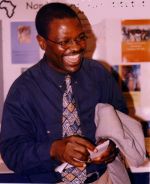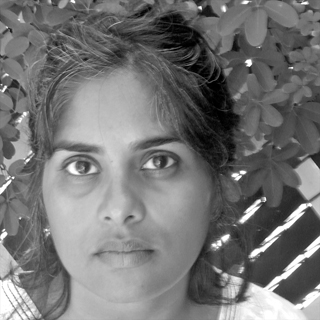Optimism | Asia-Africa Seminar 2023
Convened by the Global Development Network (University of Copenhagen) and the IARU alliance Global Transformation Network
This seminar series addresses Africa-Asia linkages, dynamics and engagement. We approach Africa-Asia both as a geographical zone of connection and engagement and as two major world regions in which contemporary and historical global trends emerge and unfold. Changing political systems, economic growth, and technological innovation are among such trends that influence and transform the globe more widely.
Event Details
Date: 28-29 September 2023
Place: University of Copenhagen, South Campus
Deadline for abstracts (max 250 words): August 15, 2023
All contributions must be in English and authors should register and submit online at:
https://forms.office.com/e/RcDH3vAgwD
Questions about the call for papers, guidelines or submission process, should be sent to: development@adm.ku.dk
To be optimistic is to be hopeful, to believe in the dreamworlds of a better future. It is to desire what may seem out-of-reach, even elusive, albeit promising visions of the good life. Consider the unending personal struggle to ‘make it’ in terms of attaining stable employment, fair and equal wages, class mobility in precarious conditions, or for that matter, the bid to attain economic growth and prosperity to emerge from the sign of underdevelopment at a national/regional scale. This temporal interplay between the future and the present, and between the binaries of optimism/pessimism has long shaped the social at multiple scales. The question, then, is: what does it mean to remain optimistic in the face of personal setbacks or the shadow of ‘failures’ and historical catastrophes? What kind of social, political, and economic structures are created and sustained in this ‘cruelty’ that demands hope in hopeless conditions?
In this seminar, we explore ideas and forms of optimism across Asia-Africa and the world, and specifically across disciplinary boundaries. The questions of development and futures in Africa and Asia have long been analyzed along optimism/pessimism and progress/decline binaries. If Afro-optimism and Afro-pessimism framed development and progress in the African context, then Asia has mostly been imagined in terms of emergence or rise, as a hopeful place for global capitalism in the past decades. The very frame of Asian optimism, channeling tropes of success, progress, health, potentiality and growth, was a counterpoint to what was perceived as lack, hopelessness, disease, death, and disaster which could be remedied in a rising Africa future. We explore the manifold and complex ideas and histories of optimism unfolding across Asia and Africa. We look at how environmental, political and cultural realities for instance inform the ways in which optimism is conceptualized, how such ideas are part of Asian and African intellectual and conceptual histories, and how these might enable us to understand global development in new ways. How might optimism be expressed in cultural and popular forms of art, in economic practices and in political discourses? And how might such understandings of optimism depart from and add to conventional understandings of development.
Seminar Information
Professor Francis Nyamnjoh, University of Cape Town

Francis B. Nyamnjoh holds a BA and an MA from the University of Yaounde, Cameroon, and a PhD (1990), from the University of Leicester, UK. He joined the University of Cape Town in August 2009 as Professor of Social Anthropology from the Council for the Development of Social Science Research in Africa (CODESRIA), where he served as Head of Publications from July 2003 to July 2009.
He has taught sociology, anthropology and communication studies at universities in Cameroon and Botswana, and has researched and written extensively on Cameroon and Botswana, where he was awarded the “Senior Arts Researcher of the Year” prize for 2003. In October 2012 he received a University of Cape Town Excellence Award for “Exceptional Contribution as a Professor in the Faculty of Humanities”. 9.) In September 2021, he was elected as a fellow by the College of Fellows of the University of Cape Town, in recognition of his research. He is recipient of the “ASU African Hero 2013” annual award by the African Students Union, Ohio University, USA; of the 2014 Eko Prize for African Literature; and of the ASAUK 2018 Fage & Oliver Prize for the best monograph for his book #RhodesMustFall: Nibbling at Resilient Colonialism in South Africa.
His current research interests include: Incompleteness, Mobility, Encounters, Belonging, Citizenship and Conviviality.
Professor Shobana Shankar, University of Stony Brook, New York

Shobana Shankar is a professor of history and African studies at Stony Brook University, New York. She holds a bachelor’s in history from Wesleyan University, Middletown, Connecticut and both a master’s and a Phd in African history from the University of California, Los Angeles. Her research and teaching focuses on Trust and the Future: Emotions in Infrastructures of Africa-Asia Engagement.
Shankar has also done research on and taught social and cultural history, religious transformations, minority communities, and international humanitarianism in Africa, with a focus on West Africa and African-South Asian networks and diasporas. In addition to her scholarly work, her earlier professional experiences include stints at the United Nations, New York Public Library’s Schomburg Center for Research in Black Culture and the New York City public schools. Her most recent book, “An Uneasy Embrace: Africa, India and the Spectre of Race” (Hurst/Oxford, 2021), is the first history of how race and racialization have brought Africans and Indians together, yet also driven them apart. The book is based on research in 7 countries, including Ghana, India, Nigeria, and Senegal.
Her current research interests include Africa (particularly West Africa), colonial and postcolonial politics, religion, health, Muslim-Christian interactions, Africa-South Asia connections.
Associate Professor Ravinder Kaur, Chair of the Asian Dynamics Initiative, University of Copenhagen
Ravinder Kaur, Associate Professor of Modern South Asian Studies directs the Asian Dynamics Initiative, a cross-faculty program at the University of Copenhagen.
Kaur works across the disciplines of history, anthropology, and international politics. Her long-term research has focused on two critical transformations in the history of modern India.
Associate Professor Karen Lauterbach, Director of Centre of African Studies, University of Copenhagen
Karen Lauterbach, Associate Professor in African Studies, focuses on the intersection of religion, culture, and social change. With a primary research interest in Christianity in Africa, she has extensively explored lived religion and displacement in the African context.
Currently, she is involved in several research projects based on the spiritual history and topography of urban space, as well as wealth and charismatic Christianity in Africa.

